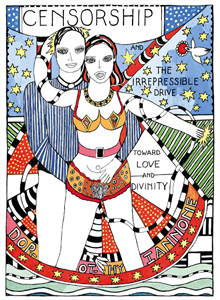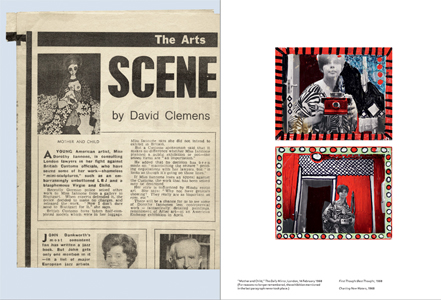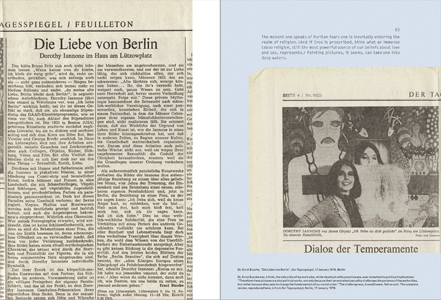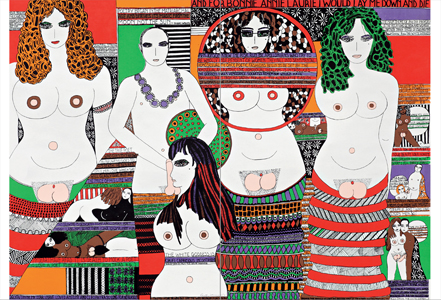Artist's book.
This publication sheds light on Dorothy Iannone's work in relation to censorship, based on her artist's book "The Story of Bern." In spring 1969, the artist was confronted with the confiscation of her works in the exhibition "Freunde (Friends)" at Kunsthalle Bern, under the directorship of
Harald Szeemann. Iannone responded to this boycott by producing a book, in which she made her perspective public and thus reclaimed self-determination over the content-related and formal aspects of her work, which had been labeled controversial.
For more than six decades, American artist Dorothy Iannone (1933, Boston–2022, Berlin) attempted to represent ecstatic love, the union of gender, feeling, and pleasure. Today her oeuvre, which encompasses painting, drawing, collage, video, sculpture, objects, and artist's books, is widely recognized as one of the most provocative and fruitful bodies of work in recent decades in terms of the liberalization of female
sexuality, and political and
feminist issues. As
Fluxus artist
Robert Filliou declared as early as in 1972, "She is a freedom fighter, and a forceful and dedicated artist, skillfully blending imagery and text, beauty and truth. Her aim is no less than human liberation." A narrative element fed with personal mythologies, experiences, feelings, and relationships runs through all of her work, unified by her distinctive colorful, explicit, and comic book style.
Active from the 1960s to the early 2020s, her work has been recently exhibited at the Louisiana Museum of Modern Art, Humlebaek (2022); the Centre Pompidou, Paris (2019); the Serpentine Pavilion, London (2018); the Swiss Cultural Center, Paris (2016); MAMCO, Geneva (2017); the Migros Museum für Gegenwartskunt, Zurich, and the Berlinische Galerie, Berlin (2014); the New Museum, New York (2009).
See also
Dieter Roth.






